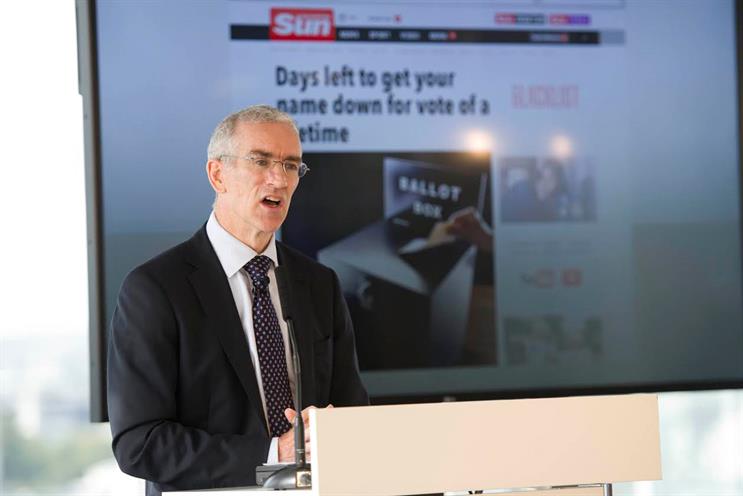
It has been more than 22 years since we were told "It’s The Sun wot won it" following the shock Conservative victory in the 1992 general election – yet the catchphrase lives on.
The press’ ability to capture and, arguably, alter the national psyche appears to be in stark contrast to the hosepipe of digital news we are subjected to today.
For all the click-bait promises, who can recall the last truly memorable headline online? There’s no guarantee that people will even know from where a story originated if read via Twitter, Facebook or another aggregator.
The changing media landscape formed a big part of an opening address by Mike Darcey, the chief executive of News UK, at Press Gazette’s News on the Move event last week.
Amid the dizzying, panoramic backdrop of News UK’s newly opened 17th floor at the Baby Shard, he admitted that the theme felt particularly poignant, as the company’s 3,500 staff had literally spent the summer "on the move".
Darcey reminded us that, when he took a call from Rupert Murdoch two-and-a-half years earlier about his prospective role, the publisher of The Sun and The Times had "some serious challenges of its own making that it was still working through" – a euphemism for the toxic phone-hacking scandal.
However, the former chief operating officer of BSkyB said a key part of the journey had been to "think hard and often" about the fundamental purpose of the press. He said: "I was struck from the moment I arrived by the strong sense of purpose it enjoys.
"Newspapers are not always nice, not always pretty. But we are a bundle of content and at the core of that bundle is news – making people think, question and imagine."
Darcey turned to September’s referendum in Scotland. It was The Sunday Times’ YouGov survey putting the "Yes" camp ahead days before polling, he said, that had thrown the "No" campaign into turmoil and changed the debate about devolution.
News UK research found that 60 per cent of voters received a "significant or very large amount of information" about the issues around independence from news brands. This compared favourably to 54 per cent who cited social media and 44 per cent the "Yes" or "No" camps directly.
For Darcey, such trends confirm the enduring power of the press at a time when the digital revolution is in full swing. Except, of course, it’s not strictly true.
News of that shock YouGov poll was in fact broken a day earlier on Twitter, by Murdoch to his 530,000 followers. And delving further into News UK’s referendum study, on "the biggest influences", more people cited social media and other websites (39 per cent) than newspapers (34 per cent), while TV and radio came out top with 42 per cent.
In any debate about reach and influence, News UK’s paywalls remain the elephant in the room. The YouGov poll was far more likely to have been read on the websites of The Telegraph, The Guardian or The Independent, albeit with full credit to The Sunday Times.
One thing noted by Darcey remains irrefutable in the run-up to the general election: that newspapers play an invaluable role in providing detailed analysis and shining a light on hypocrisy and exposing corruption.
"Politics is too important to be left to the spin-doctory of party press officers alone, or the rumour mills of social media," he said – and it’s hard to argue with that.


